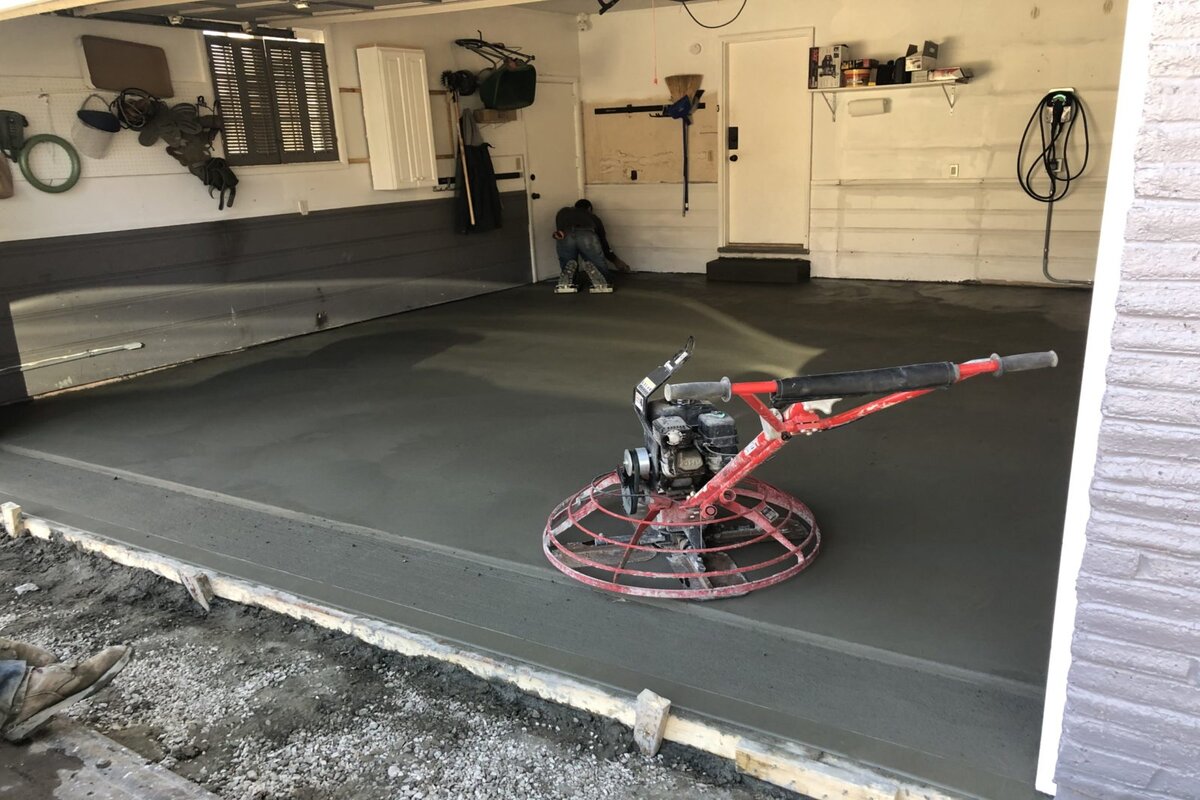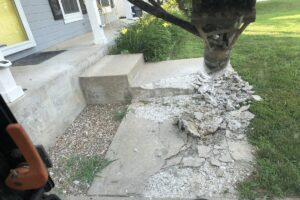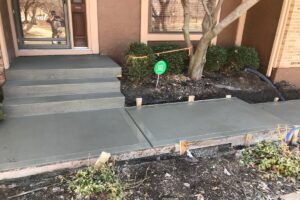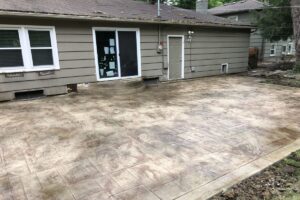If it’s time for your garage floor concrete to be replaced, it’s helpful to understand the preparation process. Preparing for new garage concrete helps you understand what factors impact pricing.
Although pouring garage concrete isn’t a job you can do by yourself, it’s important to know the preparation process. That way, you know what to expect when a team of seasoned professionals arrives to replace the flooring in your garage.
Removing The Existing Concrete In Your Garage
The first step to preparing for new garage flooring is removing the existing concrete. As you can imagine, breaking down concrete is a tough job, no matter where the concrete is located.
Therefore, hiring professionals like our Johnson Concrete team is helpful. We use specialized equipment and handle all the hauling and removal of the existing concrete.
Informing your neighbors that you’re getting the flooring in your garage replaced is a good preparation step. Breaking down concrete is noisy and will cause a lot of dust and debris, so it’s considerate to let your neighbors know there will be extra noise and dust during the time of construction.
Preparing The Ground In Your Garage
After the existing concrete is removed, the next preparation step is the prepare the base. Preparing the soil beneath the concrete is essential to prevent shifts and future structural damage.
After the soil is even and compacted, a thick gravel or stone base is added and compacted. Again, this added layer protects your concrete floor from shifting and settling unevenly.
Using The Right Mix Of Concrete For Your Garage Floor
The next preparation step is ensuring the concrete mix is correct. Concrete is a mixture of water, cement, and other elements. Concrete is prone to premature cracks or other damages when there’s too much or too little of one ingredient.
Fortunately, there are ingredients, like fiber reinforcement, that can help concrete produce a stronger hold. What most people don’t realize is that concrete expands for several years, even after it dries. Therefore, the type of concrete you use for your garage flooring is important.
What Type Of Concrete Is Used For Garage Floors?
At Johnson Concrete, we pour concrete that is at least 4,000 PSI strength. PSI stands for pounds per square inch and measures the compressive strength of concrete. The higher the PSI measurement, the more durable the concrete is.
Typically, concrete with a 4,000 PSI measurement is used for warehouses and facilities that endure a lot of foot traffic and heavy machinery. Therefore, the concrete we use at Johnson Concrete is plenty capable of withstanding the traffic the flooring in your garage experiences.
We also make sure we use the proper amount of water in our concrete mixes. Too much water results in concrete that is structurally unsound that takes a long time to dry. On the other hand, concrete mixes without enough water lead to premature cracks because it dries too quickly.
Lastly, we’d like to note that the type of concrete used in garage floors is different from the one used on your driveway. Garage floors use “No Air” concrete since it’s not normally exposed to the weather elements.
Installing Expansion Joints
One of the final steps is deciding whether or not you’d like expansion joints installed in the concrete. Concrete expands and contracts as the temperature and humidity levels change.
Expansion joints placed on the edges of a concrete slab help absorb some of the expansion and reduce stress. In the long run, expansion joints help prevent premature cracks because they alleviate the expansion and contraction that occurs.
Getting A Garage Floor Installed By The Experts
Before a team of concrete professionals arrives to replace the concrete in your garage, clearing the area helps ensure the team can get to work right away. After that, workers take the following steps to replace the concrete:
- Break down and dispose of the existing concrete
- Install a solid, even base
- Install expansion joints
- Pour new concrete that is evenly mixed
Installing a new garage floor is a detail-oriented job, so you want to make sure it’s done by some of the best in the business; contact us at Johnson Concrete to get an estimate!




